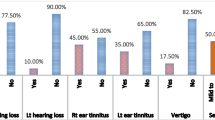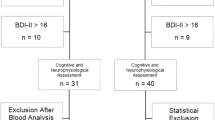Abstract
P300 cognitive evoked potentials have been shown to be effective for the assessment of mild hepatic encephalopathy but no investigations of their use with liver transplantation has been conducted. In this pilot study 12 subjects (7 male, 5 female, average age 43.9-years-old) underwent recording of auditory and visual P300 cognitive evoked potentials prior to liver transplantation and again 3–6 months subsequent to transplantation. Significant increases (p < 0.01) in P300 visual amplitude, as well as significant decreases in visual (p < 0.01) and auditory latencies (p < 0.01) were observed following transplantation. Auditory amplitudes increased but not to a statistically significant degree. P300 cognitive evoked potentials may provide a useful tool for monitoring the cerebral status of liver transplantation patients if combined with established methods such as cognitive testing and EEG. Further research of their usage with these patients is warranted.
Similar content being viewed by others
References
Amodio P, Gatta A (2005) Neurophysiological investigation of hepatic encephalopathy. Metab Brain Dis 20:369–379
Conn HO (1977) Trailmaking and number-connection tests in the assessment of mental state in portal systemic encephalopathy. Dig Dis 22:541–550
Davies MG, Rowan MJ, MacMathuna P, Keeling PWN, Weir DG, Feely J (1990) The auditory P300 event-related potential: an objective marker of the encephalopathy of chronic liver disease. Hepatology 12:688–694
Davies MG, Rowan MJ, Feely J (1991) EEG and event related potentials in hepatic encephalopathy. Metab Brain Dis 6:175–186
Folstein MF, Folstein S, McHugh P (1975) Mini-Mental State: a practical method for grading the cognitive state of patients for the clinician. J Psychiatr Res 12:189–198
Gallai V, Alberti A, Balo S, Mazzotta G, Clerici C, Firenze C, Morelli A (1995) Cognitive event-related potential in hepatic encephalopathy. Acta Neurol Scand 91:358–361
Hollerbach S, Kullman F, Frund R, Lock G, Geissler A, Scholmerich J, Holstege A (1997) Auditory event-related cerebral potentials (P300) in hepatic encephalopathy—topographic distribution and correlation with clinical and psychometric assessment. Hepato-Gastroenterology 44:1002–1012
Kugler CF, Taghavy A, Fleig WE, Hahn EG (1991) Visual P300 in acute encephalopathy resulting from non-A-nonB fulminant hepatitis: analysis of the course before and after orthotopic liver transplantation [in German]. EEG EMG Z Elektroenzephalogr Electromyogr Verwandte Geb 22:259–263
Kugler CFA, Lotterer E, Petter J, Wensing G, Taghavy A, Hahn EG, Fleig WE (1992) Visual event-related P300 potentials in early portosystemic encephalopathy. Gastroenterology 103:302–310
Montagnese S, Amodio P, Morgan MY (2004) Methods for diagnosing hepatic encephalopathy in patients with cirrhosis: a multidimensional approach. Metab Brain Dis 19:281–303
Pugh RNH, Murray-Lyon IM, Dawson JL, Pietroni MC, Williams R (1973) Transection of the oesophagus for bleeding oesophageal varices. Br J Surg 60:646–649
Saxena N, Bhatia M, Joshi YK, Garg PK, Tandon RK (2001a) Auditory P300 event-related potentials and number connection test for evaluation of subclinical hepatic encephalopathy in patients with cirrhosis of the liver: a follow up study. J Gastroenterol Hepatol 16:322–327
Saxena N, Bhatia M, Yoshi YK, Garg PK, Tandon RK (2001b) Utility of P300 auditory event related potentials in detecting cognitive dysfunction in patients with cirrhosis of the liver. Neurol India 49:350–354
Saxena N, Bhatia M, Joshi YK, Garg PK, Dwivedi SN, Tandon RK (2002) Electrophysiological and neuropsychological tests for the diagnosis of subclinical hepatic encephalopathy and prediction of overt encephalopathy. Liver 22:190–197
Trzepacz PT, Maue FR, Coffman G, van Thiel DH (1986) Neuropsychiatric Assessment of liver transplantation candidates: delirium and other psychiatric disorders. Int J Psychiatry Med 16:101–111
Watanabe A (1998) Cerebral changes in hepatic encephalopathy. J Gastroenterol Hepatol 13:752–760
Author information
Authors and Affiliations
Corresponding author
Rights and permissions
About this article
Cite this article
Reeves, R.R., Struve, F.A., Rash, C.J. et al. P300 cognitive evoked potentials before and after liver transplantation. Metab Brain Dis 22, 139–144 (2007). https://doi.org/10.1007/s11011-007-9055-4
Received:
Accepted:
Published:
Issue Date:
DOI: https://doi.org/10.1007/s11011-007-9055-4




